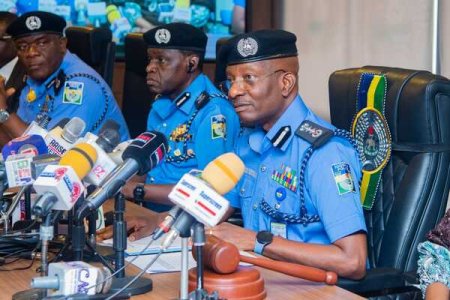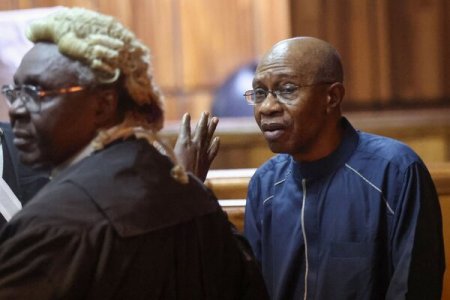
In a national dialogue hosted by the House of Representatives in Abuja, Inspector-General of Police, Kayode Egbetokun, delivered a stark message: Nigeria is not yet "mature" for the implementation of state police forces. Speaking at the event themed 'Pathways to Peace: Reimagining Policing in Nigeria', Egbetokun emphasized the need for a cautious approach to the issue of state-controlled police.
Represented by Ben Okolo, an Assistant Inspector-General of Police, Egbetokun outlined the stance of the Nigeria Police Force, asserting that the country lacks the necessary readiness for the establishment of state police structures. He underscored the importance of national unity and cohesion in law enforcement efforts, suggesting that the current centralized policing system remains the most viable option for Nigeria at present.
"It is the submission of the leadership of the Nigeria Police Force that Nigeria is yet to mature and ready for the establishment of state-controlled police," declared Egbetokun.
In a surprising twist, Egbetokun proposed an alternative solution to enhance law enforcement capabilities: the merger of the Nigeria Security and Civil Defence Corps (NSCDC) and the Federal Road Safety Corps (FRSC) into a single department under the Nigerian Police. This proposal, he argued, would streamline operations and enhance coordination among law enforcement agencies, ultimately bolstering the nation's security apparatus.
"Given this, the police leadership rather is recommending the following instead of creating state police," Egbetokun stated.
He further advocated for a significant increase in the recruitment of police personnel, suggesting an annual addition of at least 30,000 officers to meet the minimum policing standard set by the United Nations.
Egbetokun's remarks have reignited debates surrounding the structure and efficacy of Nigeria's policing system. While some may view his proposals as pragmatic solutions to existing challenges, others may question the feasibility and effectiveness of merging diverse law enforcement agencies.






